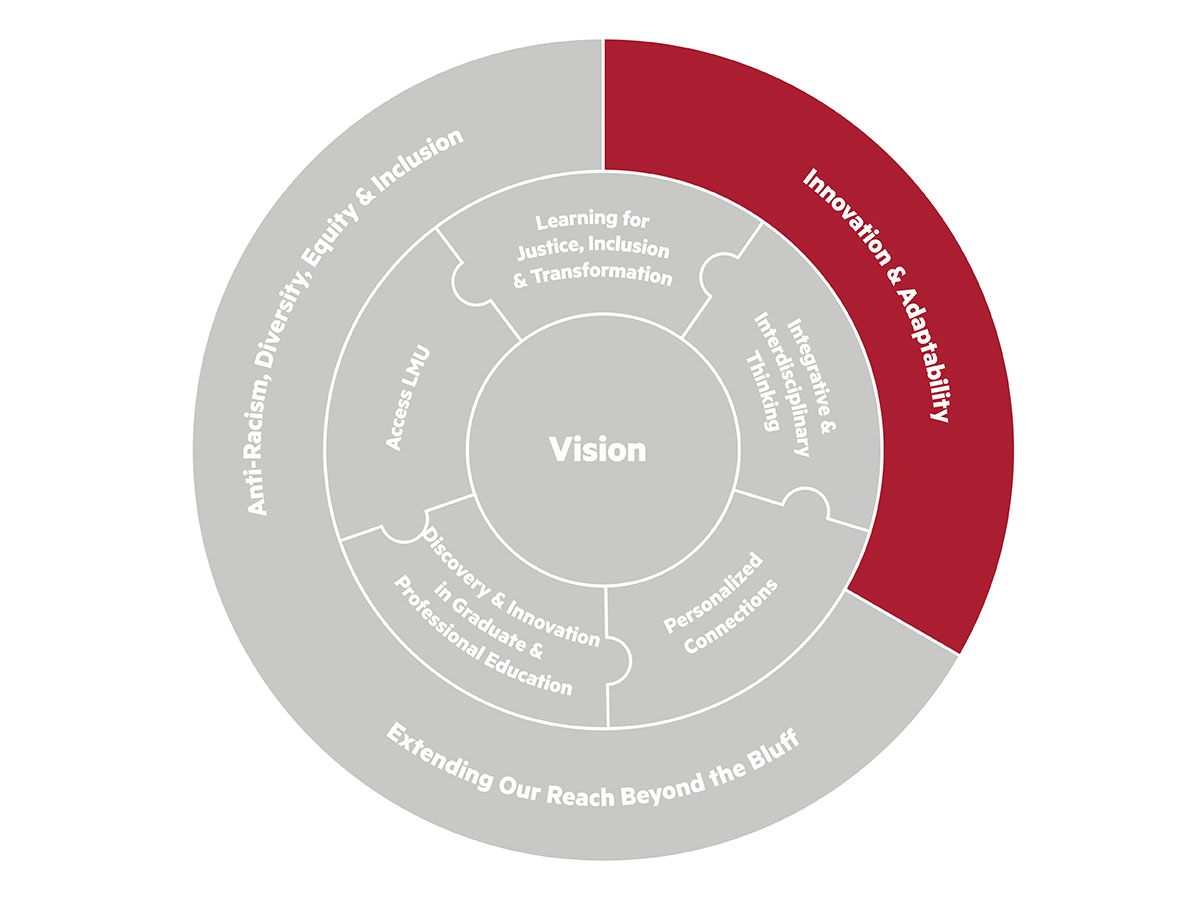Embracing the spirit of adaptability that has defined Ignatian education for centuries, we will innovate together across boundaries of all kinds to improve continually in research, teaching, and preparing students for the challenges ahead.

Rationale and Strategic Approach
LMU's rapidly changing external environment will increasingly require the ability to adapt to changing technological, demographic, economic, environmental, and socio-political trends. We aspire to exhibit creativity in our education and shared work, and to do so we will need to nurture collaboration, innovation and adaptability more intentionally as elements of our organizational culture and practices. The hallmark of Ignatian education has always been its responsiveness to emerging needs and its continual adaptation toward serving the more universal good. As the content and impact of human knowledge changes and as enhanced modes of teaching, learning, student life, and institutional management become available, LMU must improve its flexibility and willingness to experiment and take calculated risks. As the world's most challenging problems become increasingly complicated and multi-dimensional, LMU must further embrace interdisciplinary approaches to research and teaching and improve our ability to collaborate across disciplinary and functional boundaries. As the university's approach to its future becomes more intentional and strategic, we must enhance our practices of consultative decision-making to deliberate more inclusively and creatively about both ends and means and to more effectively arrive at clear choices about long-term priorities.
This commitment encourages us to pursue actions that will:
- Support and motivate a university-wide culture of experimentation, innovation and strategic risk-taking.
- Dismantle or overcome organizational silos and improve structures for interdisciplinary collaboration.
- Extend and strengthen curricular/co-curricular collaborations that enhance student learning.
- Improve the effectiveness of decision-making and shared governance practices to ensure inclusive consultation and greater adaptability to changes in the external environment.